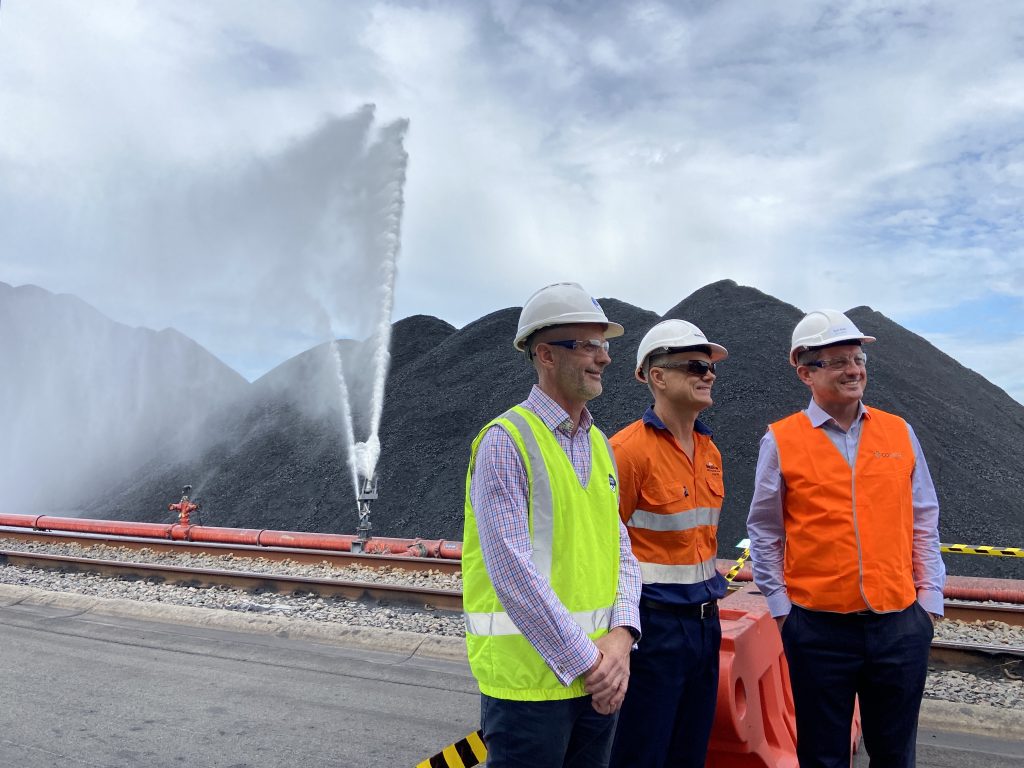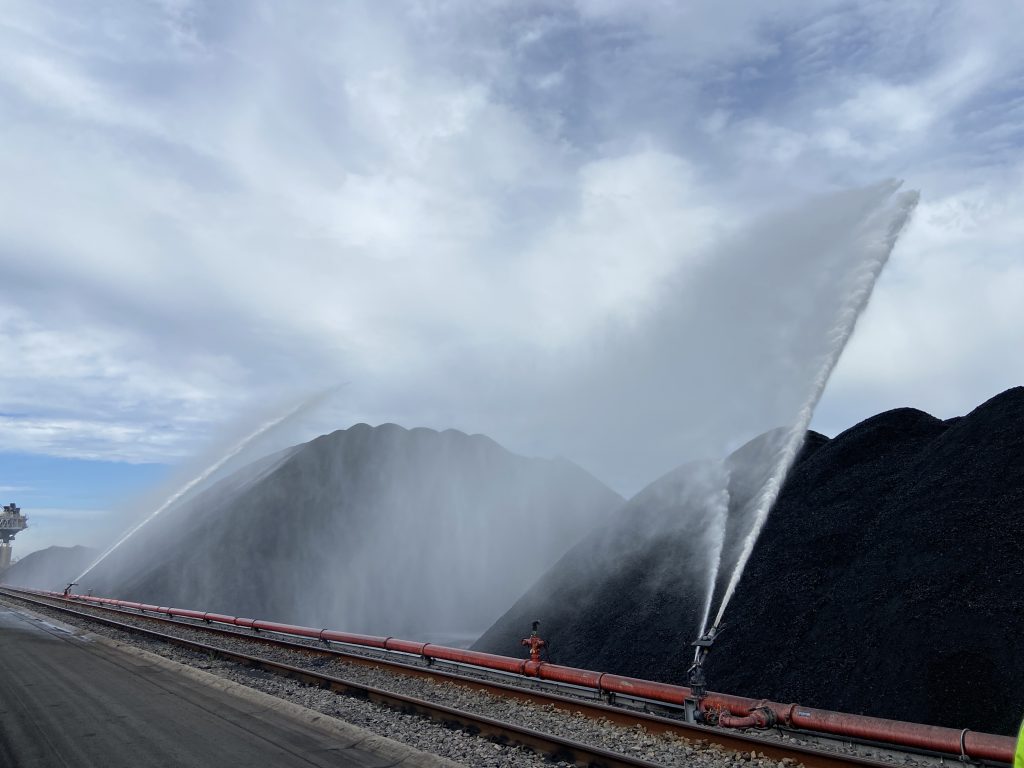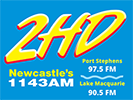
A local coal company which is one of the Hunter’s largest industrial consumers of drinking water, has come up with a solution to ease consumption.
Newcastle Coal Infrastructure Group (NCIG) has launched their recycled water initiative this week – NCIG purchases recycled water from water infrastructure company coNEXA whose water recycling plant at Mayfield takes treated waste water from Hunter Water, further treats it so it’s suitable for industrial use and then transports it to NCIG via an underground pipe network.
NCIG has about 1.25 million tonnes of coal on site at the moment but their working capacity if 4 million tonnes. They use about 900 megalitres per year of water for dust suppression and other purposes with just over half of that supplied by what they naturally catch onsite.
NCIG’s CEO Aaron Johansen said the initiative was part of the company’s commitment to reducing its reliance on the drinking water the community uses and will see them save up to 275 megalitres of drinking water from across the Hunter Water network every year.
“We’re always looking for ways to operate sustainably and reduce our environmental footprint. When the region experienced drought conditions in 2018 and 2019, we knew we needed to do more to reduce our consumption of drinking water, so we invested in an alternative water source.
“Most of the water that we use on site is supplied through water that we capture, water that falls on site through rain but even so we are a significant user of household water,
“During a normal year, our recycled water initiative will reduce our reliance on drinking water by up to 275 megalitres, which is a network saving the equivalent of 110 Olympic-sized swimming pools each year, or the annual water usage of just over 1700 residential homes.”

coNEXA CEO Kurt Dahl said as part of their partnership with NCIG, their facility had undergone upgrades to meet the needs of NCIG and other recycled water customers.
“To support the project, we have upgraded our Steel River production facility capacity from nine megalitres to 10.5 megalitres per day, ensuring more recycled water is available to meet the peak demands on the hottest days of the year, when it’s needed the most.
“Orica has been a long term user of our recycled water. They were using about 5 per cent of the Hunter’s drinking water consumption before they switched to recycled water and they use around 10 million litres of recycled water per day in peak times and they’ve been doing that now for many years,” he said.
How does it actually work? Well…
“So we take treated effluent that was otherwise on its way out to the Hunter River, we intercept that and over at Mayfield we have an advanced recycled water plant that uses two stages of membrane treatment for disinfection and also salt removal and then before we send it over here we also add another layer of disinfection through chlorine so by the time the water gets here it meets all of the requirements in terms of the guidelines but also the way that the water is used here on site,” said Kurt Dahl.
Once the water gets to NCIG they add chemicals back into it like calcium because the water ends up being too pure.

